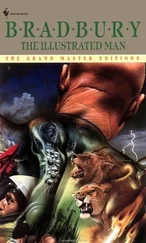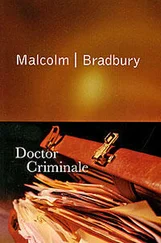Malcolm Bradbury - The History Man
Здесь есть возможность читать онлайн «Malcolm Bradbury - The History Man» весь текст электронной книги совершенно бесплатно (целиком полную версию без сокращений). В некоторых случаях можно слушать аудио, скачать через торрент в формате fb2 и присутствует краткое содержание. Жанр: Современная проза, на английском языке. Описание произведения, (предисловие) а так же отзывы посетителей доступны на портале библиотеки ЛибКат.
- Название:The History Man
- Автор:
- Жанр:
- Год:неизвестен
- ISBN:нет данных
- Рейтинг книги:3 / 5. Голосов: 1
-
Избранное:Добавить в избранное
- Отзывы:
-
Ваша оценка:
- 60
- 1
- 2
- 3
- 4
- 5
The History Man: краткое содержание, описание и аннотация
Предлагаем к чтению аннотацию, описание, краткое содержание или предисловие (зависит от того, что написал сам автор книги «The History Man»). Если вы не нашли необходимую информацию о книге — напишите в комментариях, мы постараемся отыскать её.
The History Man — читать онлайн бесплатно полную книгу (весь текст) целиком
Ниже представлен текст книги, разбитый по страницам. Система сохранения места последней прочитанной страницы, позволяет с удобством читать онлайн бесплатно книгу «The History Man», без необходимости каждый раз заново искать на чём Вы остановились. Поставьте закладку, и сможете в любой момент перейти на страницу, на которой закончили чтение.
Интервал:
Закладка:
'Oh, Flora,' says Howard, 'where's your radical passion? What's life without confrontation?'
Flora puts on her glasses; she stares at Howard through them. 'I hope you're not brewing trouble for us, Howard,' she says. 'Would I?' asks Howard, innocently. 'I thought you just explained it was your way of keeping your marriage alive,' says Flora. 'That, and coming here.'
'When can I come here next?' asks Howard, pulling on his socks. Flora opens her diary; she flicks through the pages, as fully written over as the pages in that other diary which stands by the Kirks' telephone, in the hall that Howard must in a minute get back to. 'I'm sorry, Howard,' she says, looking at its busy pages, 'I'm afraid we'll just have to leave it open. I seem to be hopping about all over the place for a bit.'
'Oh, Flora,' says Howard, 'first things first.'
'That's what I'm doing,' says Flora. 'Never mind, Howard. It will give you a chance to make some things happen. And then you'll have something more interesting to tell me next time.$ 'Well, there's one evening you've got to keep free,' says Howard. 'Next Monday. Come to a party.'
'That's the first day of term,' says Flora, looking in her diary. 'You do pick awkward days.'
'It's the perfect day,' says Howard. 'New starts all round. A beginning-again party.'
'You never learn, do you?' says Flora. 'There are very few new beginnings. Only more of the same.'
'I don't believe you,' says Howard, 'being a radical. There'll be plenty of interesting things happening there.'
'I'm sure,' says Flora. 'What time?'
'About eight,' says Howard. 'An informal party. If you see what I mean.'
'Oh, I think so,' says Flora. 'Well, I'll see, I may have to go to London. I'll come if I can, I won't if I can't. Can we leave it like that?' Howard puts on his jacket. 'Oh, come,' says Howard, 'however late. We'll be going on most of the night.'
'Well, I'll try,' says Flora, and, naked except for her glasses, she takes her little silver pencil, and writes, amid the scribble that fills the entry at the top of the page for the new and coming week, 'Party at Howard's', and adds a question mark. Howard leans over Flora; he kisses her forehead; 'Thanks,' he says. Flora swings her big bulk off the bed; she says, 'I'm going to the bathroom. Can you find your own way out?'
'I always have,' says Howard. 'Now don't count on me,' says Flora. 'I do,' says Howard. 'Don't,' says Flora, 'I refuse to be counted on. We're not married, you know.'
'I know,' says Howard, 'but what kind of party will it be if you don't come?'
'Much the same,' says Flora, 'you'll find a way of making something happen to you, won't you?'
'You have a cynical view of me, Flora,' says Howard. 'I just know you,' says Flora, 'have a novel Monday.' Howard goes out of the bedroom, and across Flora's dark living-room, and down the stairs of the apartment block. The minivan is parked discreetly under the trees; he gets in, and drives down the marked roads into the city centre.
IV
But now here it is, the day of beginning again, the day that is written down in so many diaries, and it is raining, and dreary, and blear. It rains on the shopping precinct, as the Kirks do their early-morning shopping; it rains on the terrace, as they unload the wine and the glasses, the bread, the cheese, the sausages; it rains even on the University of Watermouth, that bright place of glinting glass and high towers, the Kaakinen wonderland, as Howard drives up the long carriage drive that leads to the centre of the site, and parks in the car park. In the rain, busloads of students arrive from the station, descending and running for convenient shelter. In the rain, they unload their trunks and cases into the vestibules of the residence buildings, into the halls of Hobbes and Kant, Marx and Hegel, Toynbee and Spengler. In the rain, the faculty, scattered over the summer, park their cars in rows in the car park and rush, with their briefcases, toward the shapely buildings, ready, in the rain, to renew the onward march of intellect. In the rain, academic Howard, smart in his leather coat and denim cap, humping his briefcase, gets out of the van, and locks it; in the rain he walks, with his briefcase, through the permanent building site that is the university, past shuttered concrete, steel frame, glass wall; through underpasses, down random slopes, along walkways, beneath roofed arcades. He crosses the main concourse of the university, called for some reason the Piazza, where paths cross, crowds gather, mobs surge; he reaches the high glass tower of the Social Science Building. He goes up the shallow steps, and pushes open the glass doors. In the dry, he stops, shakes his hair, looks around. The building has a spacious foyer; its outer walls and doors are all of brown glass; beneath the glass, in one corner, trickles a small water-feature, a pool that passes under the wall and out into the world beyond-for Kaakinen, that visionary man, is a metaphysician, and for those with eyes to see, emblems of yin and yang, spirit and flesh, inner and outer, abound in his futurist city. The foyer contains much bustle; there are many tables here; at the tables sit students, representing various societies that contend, in considerable noise, for the attention of the arriving freshmen. Just inside the foyer Howard stands still, looking around; it is as if he is looking for someone, seeking something; there is a task to fulfil.
But he seems not to fulfil it; he walks on. At the tables, two groups, the Revolutionary Student Alliance and the Radical Student Coordinating Committee, have fallen out over a principle; they are busy throwing two lots of pamphlets, each labelled Ulster: The Real Solution, at each other. Howard ignores the altercation; he passes the tables; he goes on into an area of many notice-boards which, just like the tables, advertise much contention, contradiction, concern. Here are notices for all seasons. There are notices designed to stimulate self-awareness ('Women's Lib Nude Encounter Group') and self-definition ('Gaysoc Elizabethan Evening: With Madrigals'), reform ('Adopt an Elderly Person') and revolution ('Start the Armed Struggle Now?/Lunchtime Meeting Addressed by Dr Howard Kirk'). The invitations are rich, the temptations many; but even this does not seem to be what Howard is looking for. He passes on, towards the main part of the foyer, where the lift shaft is. There is much activity here too. Students crowd round the lift, going to their first meetings of the new academic year with their tutors, crowding in to their first seminars; there are members of faculty busily carrying papers, and registry persons carrying computer printouts, and signs pointing here, and others pointing there. Howard stops here; once again he looks seriously, purposefully around. There is a thing to do; but with whom might it be done? A figure emerges from the crowd; she wears a large wet raincoat; she carries a carrycot. It is one of Howard's colleagues, a girl called Moira Millikin, unorthodox economist and unmarried mother, notable for her emancipated custom of bringing her infant to class, where it gurgles and chunters as she explains the concept of gross national product to her solemn students. 'Hello, Howard,' she says, 'had a good summer?'
'Well, I finished a book, if that's good,' said Howard. 'What about you?'
'I got pregnant again, if that's good,' says Moira. 'We're a productive lot, aren't we?' says Howard. 'I'm glad I found you. I've a fascinating piece of news.' The bell pings above the doors of the lift, in front of which they stand; the doors open, and out walks a man in workclothes, pushing a wheelbarrow in front of him. 'They push those barrows so that no one can mistake them for students,' says Moira, 'that they'd hate.'
'Right,' says Howard, 'are you going up to Sociology?'
Читать дальшеИнтервал:
Закладка:
Похожие книги на «The History Man»
Представляем Вашему вниманию похожие книги на «The History Man» списком для выбора. Мы отобрали схожую по названию и смыслу литературу в надежде предоставить читателям больше вариантов отыскать новые, интересные, ещё непрочитанные произведения.
Обсуждение, отзывы о книге «The History Man» и просто собственные мнения читателей. Оставьте ваши комментарии, напишите, что Вы думаете о произведении, его смысле или главных героях. Укажите что конкретно понравилось, а что нет, и почему Вы так считаете.











